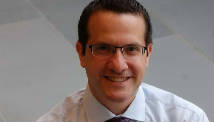
The women of the night. Credit: Paul Drinkwater/NBC/AP Photo.
8:48 p.m. ET: Adele scoops up the Globe for best original song for the latest Bond theme, “Skyfall.” Her reaction: “Oh my God! … Honestly, I came for a night out, with my friend Ida, we’re new mums … I literally came for a night out.”
8:44 p.m. ET: “Life of Pi” wins for best original score … but J-Lo’s nude dress steals the spotlight. Just like her nipple almost did at last year’s Oscars.
8:41 p.m. ET: “Argo’s” real life inspiration, Tony Mendez, joined John Goodman to introduce a clip of the film, which is up for five Globes.
8:36 p.m. ET: Well that was awkward. Some sort of camera malfunction messed up Salma Hayek and Paul Rudd’s best TV drama intro. “Homeland” wins! Executive producer Alex Gansa: “Thanks to everyone who’s been watching ‘Homeland,’ and to those who haven’t, allow me to spoil it for you.”
8:33 p.m. ET: Best actor in a TV drama goes to … Damian Lewis for “Homeland.” Considering it’s a fan and critic favorite right now, not a huge surprise.
8:28 p.m. ET: Hollywood Foreign Press Association president Dr. Aida Takla-O’Reilly disses Jeffrey Katzenberg for never learning her name, asks Bradley Cooper to “call me maybe.” Amazing.
8:21 p.m. ET: And Julianne Moore wins for best actress in a miniseries or movie. “Oh my gosh, my children will be so relieved,” she says. She gives a shout out to Tina Fey and Katie Couric — “two people who made a difference in the 2008 election.”

Credit: Kevin WInter/Getty Images.
8:18 p.m. ET: “Game Change” scores best miniseries or movie. Somewhere, Sarah Palin is probably shaking her fist.
8:14 p.m. ET: We’ll use the commercial break to declare that Poehler and Fey had an absolutely amazing opening bit. Bravo.
8:12 p.m. ET: Second award of the night, best supporting actress in TV: Maggie Smith for “Downton Abbey.” According to Poehler and Fey’s drinking game, you should drink take off a piece of clothing now.
RELATED: Poehler and Fey Reveal Their Golden Globes Drinking Game
8:10 p.m. ET: And the award for best supporting actor in a movie goes to … Christoph Waltz for “Django Unchained.” Hint that he’ll win the Oscar for that part too?
8:07 p.m. ET: Fey almost reprised her Sarah Palin impression while into-ing Julianne Moore but appears to have lost it. Dang.
8:05 p.m. ET: Poehler: “Meryl Streep is not here tonight, she has the flu. And I hear she’s amazing in it.”
8:04 p.m. ET: Fey had a great one for Anne Hathaway and “Les Mis”: “I have not seen someone so totally alone and abandoned like that since you were on stage with James Franco at the Oscars.”
8:03 p.m. ET: Poehler on Kathryn Bigelow and the “Zero Dark Thirty” torture controversy: “When it comes to torture, I trust the lady who spend three years married to James Cameron.” WOW.
8:02 p.m. ET: Oh and they’re not going to be offensive like past host Ricky Gervais. Poehler: ”When you run afoul of the Hollywood Foreign Press, they make you host this show two more times.”
8:00 p.m. ET: Fey and Poehler did an outfit change before stepping up to the mic. Poehler threw the first jab of the night: “You can smell the pills from here. ”
7:44 p.m. ET: “Scandal” and “Django Unchained” star Kerry Washington never Googles herself. She feels like it’s bad for her health. Now you know. Also, she looks gorgeous in Miu Miu.
7:40 p.m. ET: @AngiesRightLeg has met its match: Halle Berry struck a leggy pose on the red carpet in an unfortunate one-shoulder gown.

Angie's Right Leg, meet Halle's. Credit: Steve Granitz/Getty Images.
7:33 p.m. ET: It’s an “ER” reunion! George Clooney and Julianna Margulies just hugged on the red carpet.
7:28 p.m. ET: Best song nominee Adele revealed that she actually had to be convinced to write the theme for “Skyfall.” “It’s a big responsibility doing a Bond song,” she said. “I didn’t want to let everybody down by doing it.”
7:19 p.m. ET: Julianne Moore looks stunning in black and white Tom Ford. She’s up for best actress in a TV movie for “Game Change.”
7:18 p.m. ET: “Mad Men” star Jon Hamm on the best part of playing Don Draper: “Well it’s always fun to play drunk, because if you forget your lines you’re just like, ‘Uh, well, I’m in character.’”
PHOTOS: The 2013 Golden Globes Red Carpet
7:15 p.m. ET: Taylor Swift wore a mermaid-cut eggplant gown … and did not at all talk about what happened with her latest boyfriend, Harry Styles. Sigh.

Credit: Credit: Steve Granitz/Getty Images.
7:14 p.m. ET: Hugh Jackman revealed the “horrible” way he shed weight quickly before filming “Les Mis”: “I lost about 35 pounds in 36 hours before the first scene. I didn’t drink any liquids whatsoever.”
7:07 p.m. ET: Another fashion miss: Jennifer Lawrence. It looks like she stole Madonna’s cone bra and cut off the straps.

Credit: Steve Granitz/Getty Images.
7:02 p.m. ET: “Zero Dark Thirty” star Jessica Chastain diverged from the major trends of the night — nude, black and white, and red — in a powder blue Calvin Klein Collection gown. The plunging bodice looks a bit like a sack.

Credit: Steve Granitz/Getty Images.
6:57 p.m. ET: E!’s mani-cam has become a source of contention. While some actresses happily showed off their nails on the tiny red carpet, Aziz Ansari refused to stick his hand in the diorama-like box.
FULL COVERAGE: The 2013 Awards Season
6:56 p.m. ET: Olivia Munn has a new perspective on newsrooms now that she’s on Aaron Sorkin’s “The Newsroom.” “I think [our show] makes other newsrooms seem pretty easygoing,” she said.
6:42 p.m. ET: Julia Louis-Dreyfus said she had a “little tiny piece of cake” to celebrate her birthday. “Look, this is a corset,” she said, pointing to her Vera Wang dress. “I can’t mess around.” Though she’s up for best actress in a TV comedy, she thinks she’ll lose. “I hope that Lena Dunham or Amy Poehler have their speech ready,” she said.
6:38 p.m. ET: Hosts Tina Fey and Amy Poehler are encouraging their guests to get liquored up. “It’s a party and we want it to remain a party,” Fey said. Both have awesome outfits — a strapless black and white gown for Fey and a low cut tuxedo for Poehler.
6:31 p.m. ET: “Girls” star and Globes nominee Lena Dunham said her stylist gave her very specific instructions about adjusting her dress because “my breasts have a tendency to shove my dress to the right.” She looks lovely in chocolate brown, off-the-shoulder gown.

Lena Dunham. Credit: Steve Granitz/Getty Images.
6:28 p.m. ET: Best actress in a TV comedy nominee Zooey Deschanel showed off her film strip nail art on the red carpet. Very Hollywood.

Zooey Deschanel. Credit: Steve Granitz/Getty Images.
6:22 p.m. ET: Another stunning new mom: Megan Fox. She admitted that husband Brian Austin Green picks most of her dresses.
6:16 p.m. ET: The first surprise of Golden Globes: How utterly amazing Claire Danes looks. She gave birth a month ago and has a flat, practically concave stomach. She tried on her red Versace dress for the first time last night but admitted she’s “been in sweatpants for quite a while.” She added, “I hope I don’t leak.”
RELATED: Claire Danes Flaunts Post-Baby Body at the Golden Globes

Claire Danes dressed her insane post-baby body in Versace. Credit: Steve Granitz/Getty Images.
6:14 p.m. ET: Amy Adams, up for best supporting actress for “The Master,” looks angelic in a Marchesa in a color she called ballet pink. “This is mommy at work,” she said to her daughter back at home.

Amy Adams in Marchesa. Credit: Steve Granitz/Getty Images.
6:12 p.m. ET: Julianne Hough opted for a creepy crawly accessory — her earrings are made out of actual beetles.
6:02 p.m. ET: For Julia Louis-Dreyfus, this Globes is extra special — today is her 52nd birthday and she’s up for best actress in a TV comedy for “Veep.” “Today I’m either a year older & I’m gonna lose a Golden Globe OR at least I’m nominated & I’m not dead yet,” she wrote on her WhoSay page.
6:00 p.m. ET: It’s here, the night that Hollywood has been steeling its liver for: The Golden Globe Awards, which are almost always a raucous time because the Hollywood Foreign Press keeps the bar open throughout the ceremony. We’ll be chronicling all the jokes, insults, red carpet highlights — and of course, the winners — right here. Keep refreshing for the latest updates.
PHOTOS: 2013 Golden Globe Nominees













